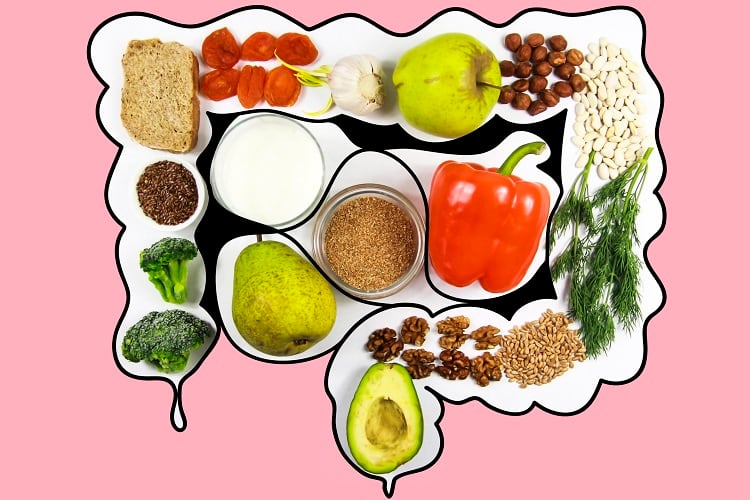Gut health diets are ‘starting to form part of the consumer lexicon’, according to research released by Kerry in 2020, Nutrition in Foodservice Unlocking Opportunities in a Changing Consumer Landscape in the UK.
The report found 16% of UK foodservice customers are interested in – or already following – the ‘gut health trend’, compared to an average of 25% across Europe as a whole.
“While interest among UK consumers in this category lags behind some EU countries, it is expected to become more important in the future… International consumer observations suggest this is an area that will continue to grow. With the COVID-19 crisis reinforcing the importance of health and wellness, it has never been timelier for brands to spotlight genuine immune-supporting ingredients and nutrients,” noted Elaine Druhan, marketing manager of foodservice at Kerry, the maker of Wellmune and GanedenBC gut health ingredients.
“According to Kerry ConsumerFirst research from 2019, immune system support was already the number one reason European consumers purchase healthy lifestyle products. As consumers take a more proactive approach to health in the wake of COVID-19, introducing immune health on foodservice menus — especially in the form of immunity-supporting beverages—could unlock opportunities for European outlets,” she continued.
A trend ‘in its infancy’ in foodservice
Kerry business development manager Laura Collins told FoodNavigator that this trend ‘is in its infancy in foodservice’. But the opportunity should be viewed in the context of the overall conversation around gut health.
“What’s happening in the immunity product market currently is best understood as a process that looks more like an acceleration, rather than disruption. While many companies are focusing on a spike in demand for immune health products, interest in immune health solutions isn’t a new phenomenon. What’s evolving is the way consumers are using health and wellness products, the types of products they want and the increasing focused on product and nutritional benefit claims. Understanding that will help products and brands stand out.”
Indeed, Collins noted that some operators have already begun to ‘react well to this’ by ‘celebrating food with gut health supporting ingredients’ as well as highlighting new and existing items on their menus, she said, pointing to the launch of a Nuttin’ But probiotic-fortified oat product as case in point.
An emerging opportunity in out-of-home
Foodservice and out of home channels have typically made less progress on healthy reformulation efforts than grocery suppliers, as evidenced by the focus Public Health England is now placing on OOH in its obesity strategy.
Druhan told this publication that people are now looking to OOH outlets to deliver healthier foods ‘either through reducing certain nutrients like salt, sugar and fat or fortifying with positive nutrients’.
“If we were to take two examples of functional need states; gut health and immunity, we can see there is an increase in interest and demand,” she suggested.
Kerry research from 2019 demonstrated that 19% of consumers seeking to change their diet are doing so to improve their gut health. Further proprietary research from Kerry has shown that most consumers - 68% - are interested in consuming food with immunity boosting benefits at breakfast while 36% say they’d like such a drink as a mid-morning snack and 38% would prefer it mid-afternoon.
“Aligning functional beverage menus to these times may help foodservice outlets capitalise on the growing demand for products with gut health or immunity benefits, especially amongst consumers seeking both convenient and healthy choices,” Druhan noted.
“Additionally, 45% of global consumers try to find the healthiest option when they eat out,” Collins elaborated, citing Global Data research. Meanwhile, a paper from Datassential found 78% want restaurants to offer more options containing functional ingredients.
“This highlights the potential of probiotics, given the high levels of awareness they command. Kerry research shows that over half (54%) of consumers worldwide are aware that probiotics can promote good digestive health, while 46% know they offer immune system support,” Collins concluded.
Beverages a ‘natural starting place’
Druhan said beverages were a ‘natural starting place’ for foodservice operators who are ‘always looking to differentiate’.
“Dairy-based drinks, plant-based alternatives and juice drinks are the most active categories featuring immunity claims and are also already key products in foodservice.
“We believe that the beverage category is the most applicable category for foodservice operators to play in initially and limited time offers prior to the pandemic are evident of this, with products such as matcha lattés and protein fortified smoothies on the market.”
Keep it simple
When developing products to meet this growing niche, Kerry’s business development experts advise product developers not to stray too far from familiar ground.
“They have to be mindful of ingredients that consumers are familiar with and combine with those which have proven health benefits. Our research has found that there are three key parts to a winning fortified beverage: the welcome mat, the halo and the hero,” Druhan elaborates.
“Welcome mat ingredients are ones that are familiar and will entice the consumer, such as strawberry or coffee. A halo ingredient is a trending ingredient which can have an associated benefit to the immune system, such as lemon or ginger. The hero is an ingredient that is scientifically proven to support immunity or gut health.”
Ingredients that pack a punch
Collins believes that the addition of immune-boosting ingredients should be made within the context of a products’ overall nutritional profile. "Adequate nutrition and appropriate intakes of energy, protein, vitamins and minerals are essential to maintain the body’s natural defences against disease-causing viruses and bacteria,” she explained.
"There are a number of immune health ingredients that are general nutritional components. Vitamin C (ascorbic acid) is necessary for a variety of biological functions with antioxidant status being the primary role. [Meanwhile] probiotics are live microorganisms which when administered orally for several weeks, can increase the numbers of beneficial bacteria in the gut and modulate systemic immune function.”

